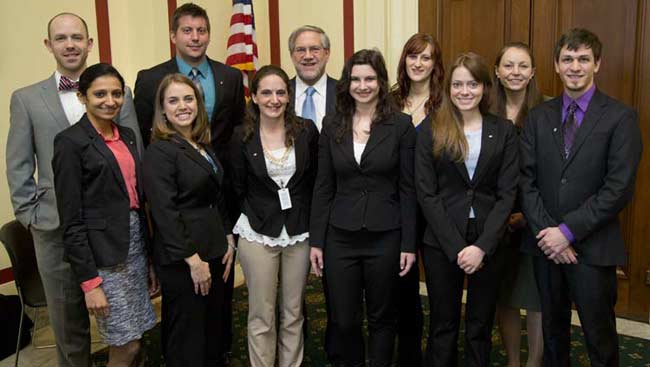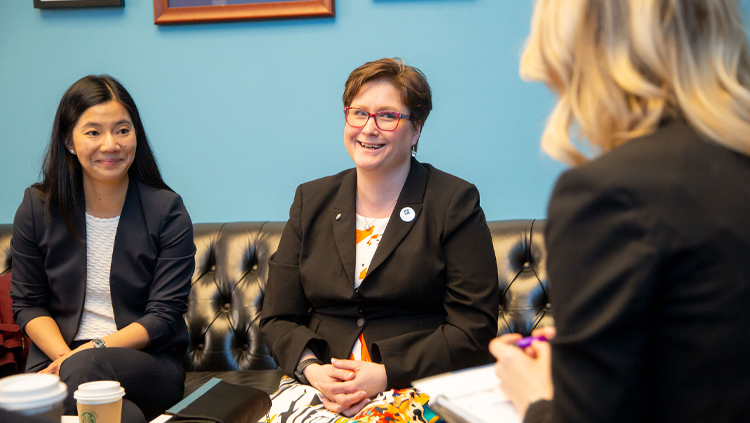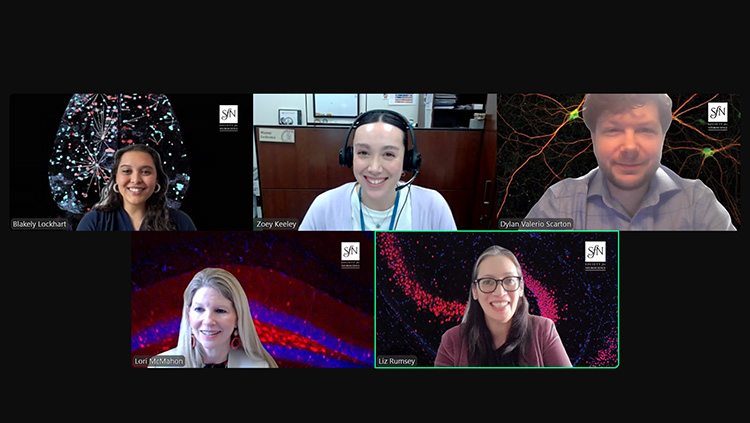
As graduate students and postdoctoral fellows working in the lab, we are acutely aware that federal funding for basic science has decreased over the years. Is there anything we can do about it?
As I found out as an SfN Early Career Policy Fellow participating in SfN’s Capitol Hill Day, there is.
The Early Career Policy Fellows Program is a year-long fellowship that kicks off with Capitol Hill Day, a unique opportunity for graduate students and postdoctoral fellows to interact with policymakers in a supportive environment. This year’s Hill Day was on Thursday, March 26, but preparations actually begin long before that day.
Each fellow was paired with two mentors who walked us through what we could expect and how to best prepare. On Hill Day, we visited policymakers in groups consisting of two or three established investigators who have received federal funding for years as well as two or three young investigators. Each group also had a representative from SfN or Research! America to act as a guide. As I found out, House and Senate buildings are a veritable maze, and this person helped us get to our meetings.
Here are my takeaways from advocating for neuroscience on the Hill:
- The most important things to remember are the “asks” — concrete steps we requested the policymakers take. In addition to increasing funding for NIH and NSF, we also asked them to learn more about neuroscience — offering SfN as a resource — and to visit a lab to see how funding is being used.
- Depending on your constituency, you may meet many legislators. Make sure you do extensive research beforehand to find out their interests and backgrounds.
- You’ll most likely meet with staffers who represent the members of Congress. Staffers are young, bright individuals who are busy and have many focus areas. How we make our message relevant to them is up to us. Be ready with personal stories of how decreased science funding affects you and your career. As an epilepsy researcher, it was of great interest to me that Rep. Leonard Lance (R-NJ) has a caucus on rare diseases. As seizures can be present in these diseases, this gave me a unique talking point to use with the Congressman and his staffer.
- Basic scientists should be ready to talk about the necessity of consistent funding for basic science. To make this point, know of specific examples where basic science findings have been directly useful for the discovery of novel therapies and techniques.
- We had extensive group discussions and a game plan ready before going to the Hill, but I found out that it is just as important to go with the flow and have a relaxed conversation. Of course, it’s better to learn key stats beforehand, but if you’re asked something you don’t know, tell the policymakers and staffers you will get back to them. This is actually a great opportunity to stay in touch.
Ultimately, I was surprised that meeting with elected representatives was so simple and doable. I am certain I will return for Hill Day 2016!








